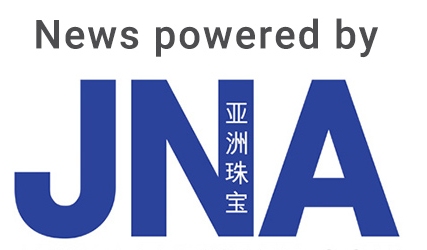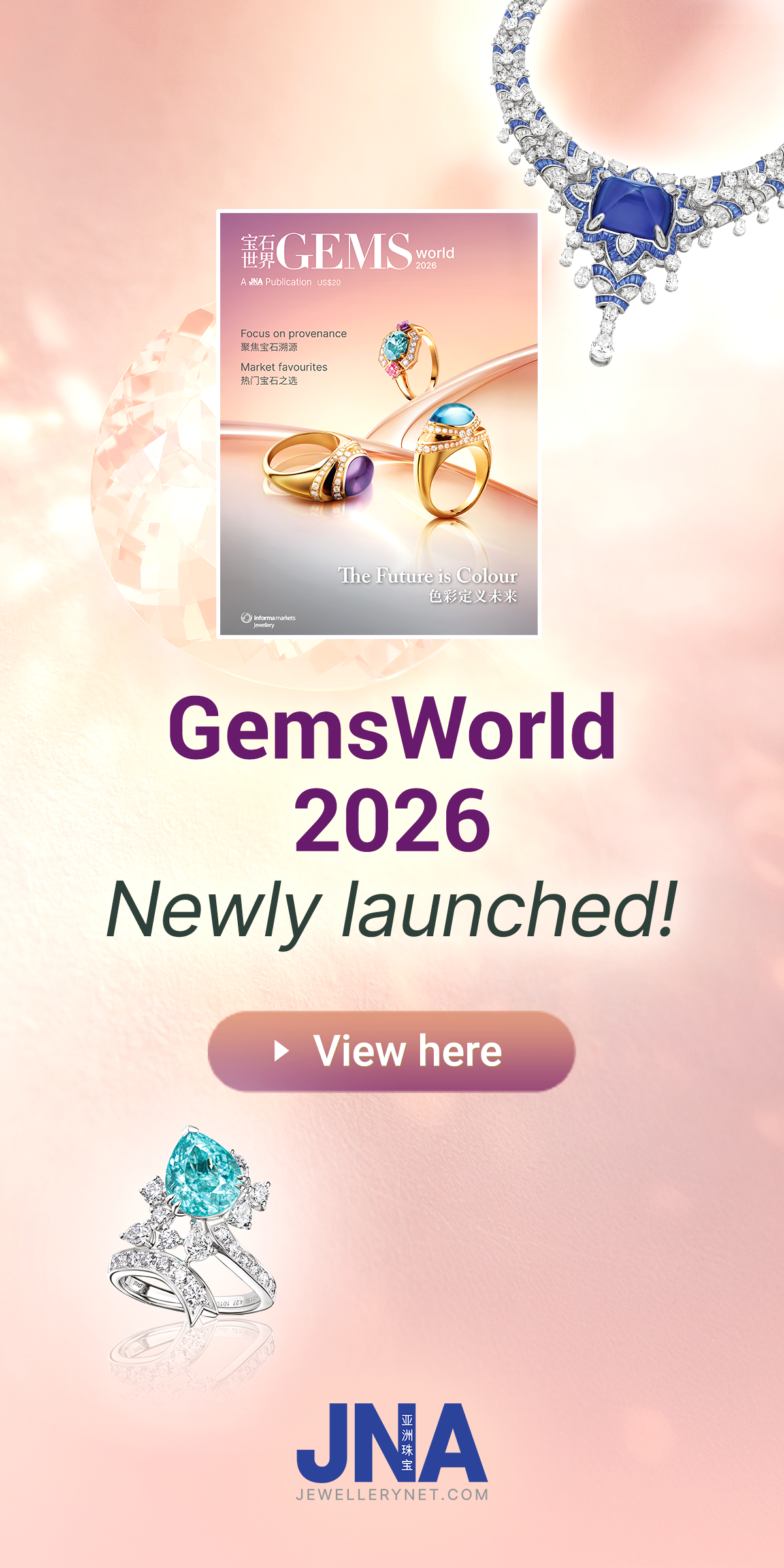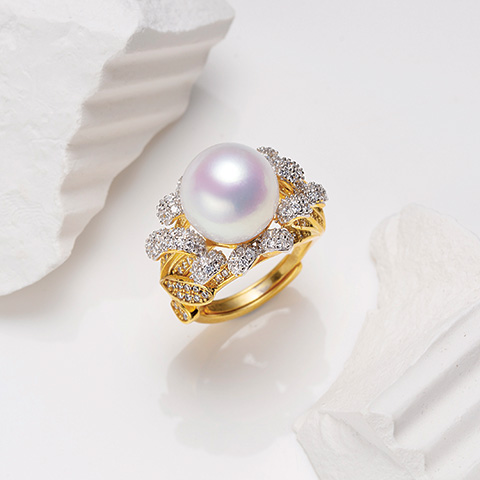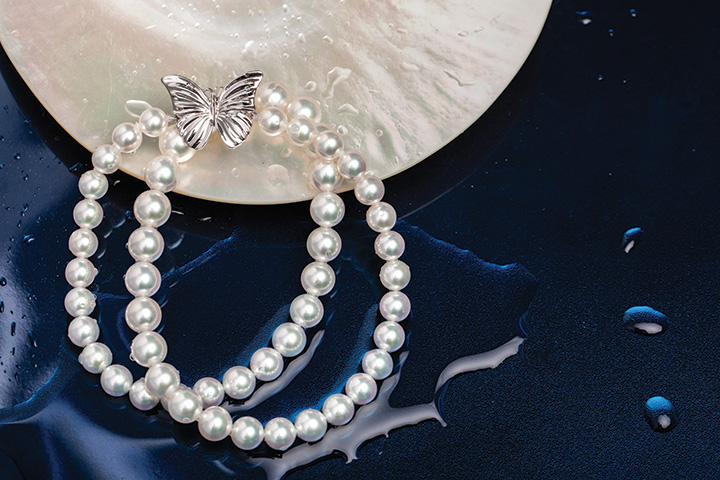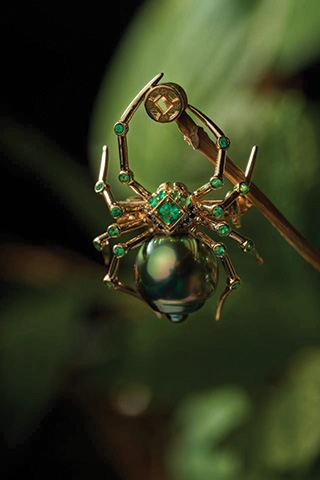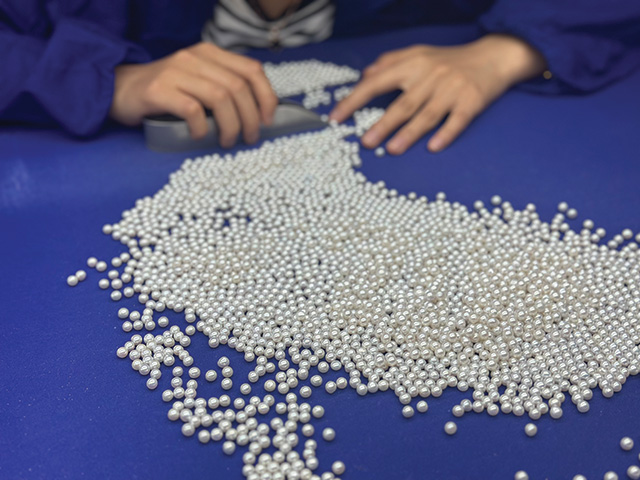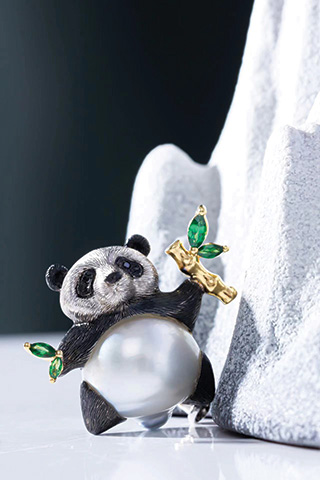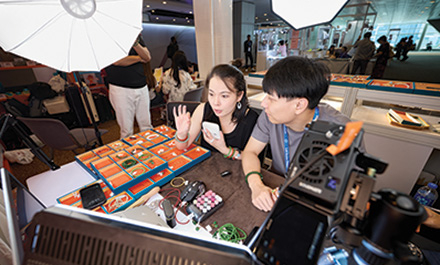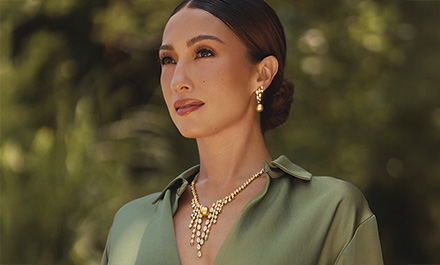China has witnessed extraordinarily strong demand for loose pearls and pearl jewellery amid ongoing economic challenges. To sustain this momentum, the pearl industry is banking on advancements in cultivation technology and product upgrades while exploring opportunities in overseas markets.
This article first appeared in the Pearl Report 2024-2025.
Following a boom in 2023, China’s pearl sector experienced a slowdown in the first half of 2024 due to waning market interest. Rising demand for higher-quality pearls, however, offers a silver lining.
China-based pearl companies attributed this sluggishness to ongoing global economic headwinds, which inevitably impacted the Chinese pearl market. Buyers are also taking a more cautious stance as pearls become more expensive due to stronger demand.
“The pearl market performed exceptionally well in 2023 until nearly the end of the year. The market goes through cycles of ups and downs, and an eventual cooldown is natural,” said Shen Ronggen, general manager of Zhejiang OSM Pearls & Jewelry Co Ltd, which is a major pearl enterprise in China.
According to Shen, business was down since the fourth quarter of 2023. Pearl jewellery sales also declined during the Mother’s Day holiday in May 2024 while prices of loose pearls softened compared to peaks reached in 2023.
“Bear in mind that the pearl market has grown significantly, gaining wider recognition in recent years. Despite slower business, we are still in a relatively favourable position. The business will not fall to extremely low levels,” he noted.
Solid demand
Retail sales of pearl jewellery in China increased by approximately 46 per cent to RMB 35 billion (around US$4.85 billion) in 2023, accounting for 4 per cent of the country’s total jewellery sales, revealed data from the 2023 China Jewellery Industry Development Report by the Gems & Jewelry Trade Association of China.
The so-called “celebrity effect” and the livestreaming phenomenon continued to fuel consumers’ desire for pearls, according to Ye XiaoBo, chairman of pearl jewellery retailer Y&M Pearls.
“Sales remain stable in 2024, with 80 per cent of overall sales being generated from livestreaming,” Ye explained. “There is solid demand for pearls. Consumers learn about pearls through social media platforms and then make purchases through livestreaming sessions, which is convenient for them.”
The market witnessed steady demand for pearls in all categories, particularly freshwater pearls. According to Zhou DingXiang, chairman of freshwater pearl specialist Zhejiang Ming Huang Jewellery Co Ltd, the significant growth in domestic demand for freshwater pearls can be attributed to vast improvements in the quality of freshwater pearls sold in the China market as well as the higher prices of saltwater pearls, which are a deterrent to buyers.
“Quality attributes like the lustre and roundness of our fine freshwater pearls are comparable to those of saltwater pearls, but at a much more affordable price point. This makes freshwater pearls a preferred choice among value-conscious consumers. So-called baby pearls of 3mm to 4mm in size are favoured by younger buyers,” shared Zhou.
Ming Huang Jewellery has over 30 years of experience in freshwater pearl cultivation and manufacturing as well as wholesaling and retailing a wide range of loose pearls and commercial- to fine-quality pearl jewellery.
Pearl technology
The quality of freshwater pearls in China has significantly improved over the years, thanks to advancements in cultivation methods and pearl farming.
According to Zhou of Ming Huang Jewellery, an increasing number of freshwater pearls cultivated in China are now nucleated, which occurs when a pearl nucleus is implanted inside a pearl oyster to stimulate nacre secretion.
By comparison, non-nucleated pearls are entirely composed of nacre, minus bead implants. Nucleated pearls, like saltwater pearls, tend to be rounder, whiter and more lustrous.
Ming Huang Jewellery leverages innovative beading techniques to cultivate high-quality nucleated freshwater pearl varieties such as “Bai sheng li” and “Zhi ling long,” to name a few.
Zhou said his company is now capable of producing 5mm to 8mm white freshwater pearls, called Bai sheng li pearls, without artificial colour enhancement. Zhi ling long pearls, meanwhile, come in a wide colour spectrum – from light to rich purple, and even metallic hues. “It is known as the domestic version of Tahitian pearls,” said Zhou.
Premium pieces
Pearl companies also pointed to a shift towards meticulously crafted premium products in more sophisticated designs, driven by younger consumers with a higher purchasing power.
“Consumers today have a deeper understanding of pearls and heightened appreciation of the artistry behind gemstone setting. They gravitate towards high-quality pieces that showcase the unique allure of these gems,” said Wang Lin, owner of Beijing Lihui Jewelry Co Ltd.
Listed among the top 10 high-end bespoke pearl jewellery companies on Taobao, Lihui Jewelry Co Ltd’s jewellery brand Oldking Jewels specialises in fine pearl jewellery designs.
Meanwhile, Tian Renyu, founder and designer of Heidi Jewelry, noted that consumers now prioritise the quality of pearls. “To cater to this demand, we launched our premium freshwater pearl jewellery collection, Dreamy Rainbow, which showcases the natural lustre of pearls in classic and simple designs,” shared Renyu.
Ye of Y&M Pearls and Zhou of Ming Huang Jewellery also observed a significant demand for Tahitian pearl jewellery in the Chinese market, buoyed by Tahitian pearls’ extensive range of colours, versatility and trendy appeal –attributes that are more in line with the preferences of more discerning consumers.
Seeking growth
Zhuji, located in Zhejiang Province, accounts for 70 per cent of total freshwater pearl production worldwide. In 2023, annual sales of pearls in Zhuji exceeded RMB 50 billion (around US$6.89 billion), which represented 80 per cent of China’s total pearl sales, government data showed.
Industry stakeholders participating in the 2024 Shanxiahu World Pearl Congress Roundtable Conference in Zhuji on May 21, 2024, noted that China’s freshwater pearl industry is poised for further growth, supported by innovative sales models such as livestreaming, digitalisation of supply chains and pearl farming innovations.
He Tieyuan, secretary general of Professional Association of Pearls Zhejiang, said Zhuji aims to further strengthen its position as the “Pearl Capital of China,” encompassing freshwater pearl cultivation, processing, manufacturing, wholesale, research and development, and retail sales.
“To further propel the growth of the pearl industry in China, it is crucial to adopt advanced scientific pearl farming methods. This includes utilising genetic breeding technology to improve pearl quality, particularly colour and lustre. Additionally, the industry must improve processing techniques and introduce innovative designs to add value to pearls. Furthermore, improvements in e-commerce and livestreaming will boost sales,” said He.
Ruan Tiejun, chairman of Zhejiang Ruan’s Pearl Holding Co Ltd, said leading e-commerce platforms such as Taobao, Alibaba and Douyin have established their livestreaming bases in the China Pearls and Jewellery International City in Zhuji. “These digital channels have introduced various campaigns to promote pearl jewellery with encouraging sales figures,” he added.
China’s freshwater pearl sector must also expand to international markets, which present dazzling business opportunities, according to He. Two categories of freshwater pearls were standouts – small-sized pearls and irregular-shaped pearls. Irregular-shaped pearls cater to Western buyers’ demand for unique materials.
To bolster the global visibility and international presence of Chinese freshwater pearls, Professional Association of Pearls Zhejiang collaborated with jewellery exhibition organisers to arrange Chinese pearl companies’ participation in local and overseas trade shows. In 2024, they covered exhibitions across Hong Kong, Kunming, Beijing, Shenzhen and Japan, shared He.

